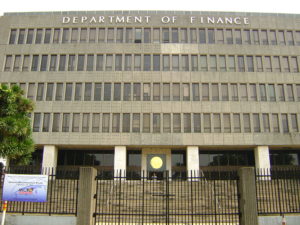
MANILA – Department of Finance (DOF) Secretary Carlos Dominguez on Monday bared government’s plan to reduce personal income tax and corporate tax rates while supplementing government revenues through an augmented Value Added Tax (VAT) base.
During the budget briefing of the Development Budget Coordinating Committee (DBCC) at the House of Representatives, Dominguez proposed to lower income tax rates for both individual and corporate to about 25 percent, resulting in a consolidated tax revenue loss of about PHP173.8 billion pesos.
The Finance chief noted that the Philippines’ income tax rates, with 32 percent for personal income and 30 percent for corporate taxation, have been among the highest in the ASEAN region. Meanwhile, the country’s tax base is among the narrowest in the bloc.
“The tax reform we intend to present to Congress aims to lower tax rates and broaden tax bases to align with the system’s prevailing neighboring economies,” said Dominguez.
In order to offset the state revenue loss due to lowered income taxes, part of the “transformative” tax package eyes expanding the VAT base, rationalizing tax incentives, and indexing oil excise taxes on inflation.
“The package would include the review of tax incentives that have been given without time-bounds. The excise tax on oil has not been adjusted for two decades and the significant drop in oil prices gives us an opportunity to adjust to inflation,” Dominguez said.
“We are also looking at the tax on sugary and fatty foods to encourage consumers to buy healthier foods,” he added.
Meanwhile, current VAT exemptions will be lifted excluding the “exemptions on food, medicine and education” and zero-rated VAT transactions will also be removed.
Dominguez said the tax reform package must be designed not just to raise revenues but to support inclusive growth.
“The ten-point socioeconomic program revolves around the need to maintain sound macroeconomic and fiscal policies, invest in people and address the binding constraints to investment and job creation,” said the Finance secretary.
“Tax reform is needed to achieve the larger goals of the administration and to make sure that everybody feels the country’s growth,” he added.
Apart from reforming the country’s tax revenue system, he said the administration also plans to thoroughly overhaul the entire government structure by abolishing “obsolete government agencies as a first step in trimming bureaucratic fat”.